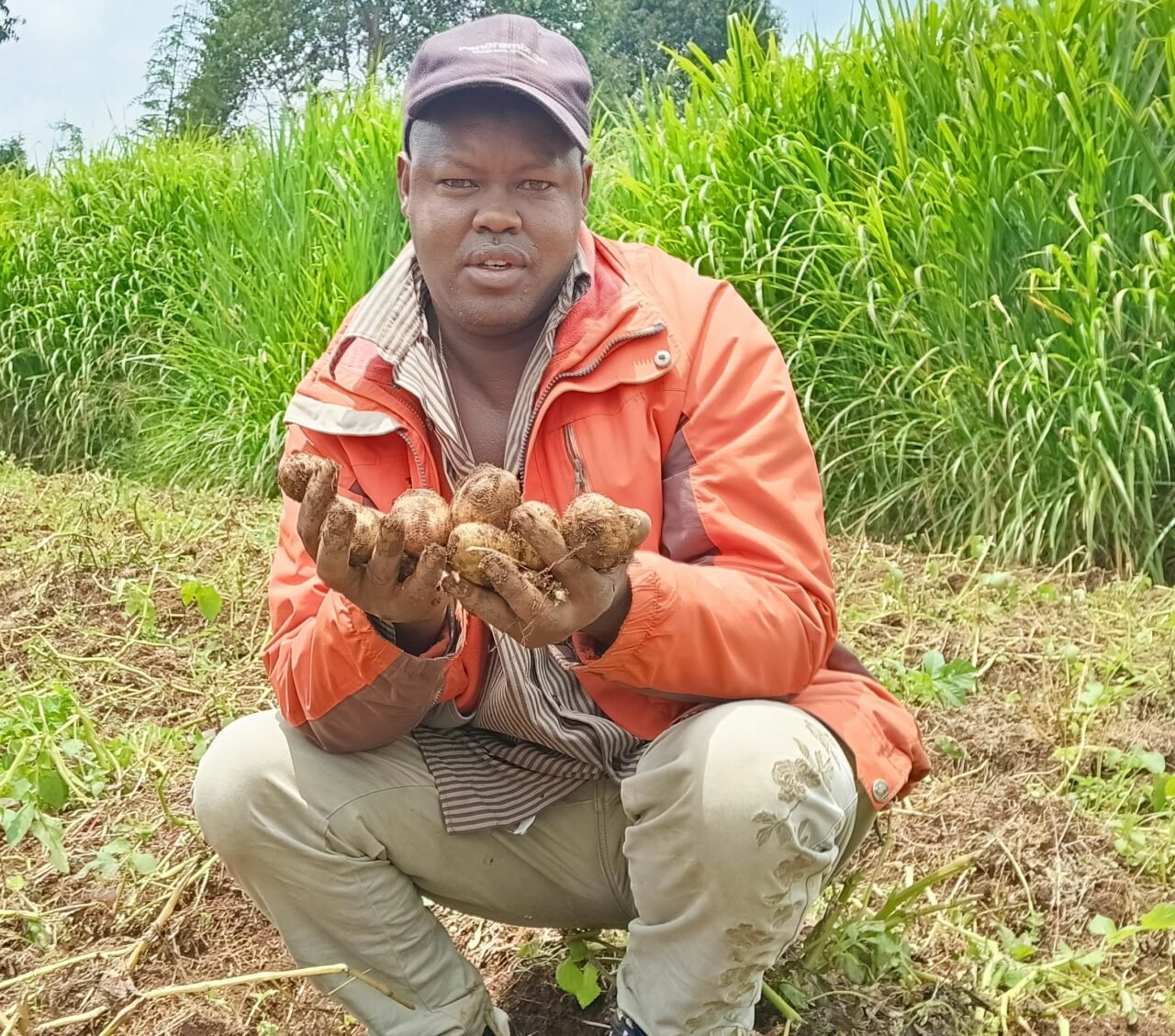Rooted apical cuttings technology set to transform potato farming in Kenya
Farmers in Kenya are reaping record potato harvests thanks to Rooted Apical Cuttings (RAC) technology — a game-changing method that produces disease-free seed, doubles yield, and could transform food security across the country
By Sandra Neddy
Potato farmers in Kenya are reporting double the yields thanks to a breakthrough seed technology known as Rooted Apical Cuttings (RACs). Early adopters in Marioshoni, Elburgon, and Nakuru have harvested up to 15 tonnes per hectare, more than twice the output from traditional tuber planting, which averages 7 tonnes per hectare.
Potatoes are Kenya’s second most important food crop after maize, providing food and income for more than 800,000 smallholder farmers. Yet, fewer than five per cent of farmers access certified seed, leaving most to plant recycled or market-sourced tubers often riddled with bacterial wilt, late blight, and viruses. This cycle of poor seed quality suppresses yields, lowers farmer incomes, and contributes to high consumer prices.
RAC technology offers a solution – disease-free, uniform, and fast-multiplying seed cuttings that boost yields, reduce losses, and strengthen food security.
How RAC technology works
Developed by the International Potato Centre (CIP) and introduced in Kenya through partnerships with Stokman Rozen Kenya Ltd, RACs are produced from the apical tips of clean, lab-grown potato plants.
The tips are clipped, rooted in soil, and hardened in a controlled environment. After three weeks, they are transplanted to farms, where they grow into healthy plants that generate numerous tubers. Within another three months, farmers can harvest clean tubers to replant, accelerating seed multiplication.
Unlike traditional seed tubers, RACs minimise disease risks while guaranteeing faster and higher yields.
Proven results in Kenya
Demonstration plots in Nakuru have delivered striking outcomes with Shangi variety posting 7.5–10 tonnes per hectare, Wanjiku 12.5 tonnes per hectare, and Unica 15 tonnes per hectare.
According to ASARECA, which is supporting the rollout, these results are “nothing short of transformational” for farmers long trapped by poor seed quality.
Collaboration driving innovation
The RAC rollout is a collaborative effort, supported by Kenya Agricultural and Livestock Research Organisation, National Potato Council of Kenya, Kenya Plant Health Inspectorate Service, GIZ, IFDC, Egerton University and FIPS Africa.
This broad coalition ensures that RACs are scientifically sound, commercially scalable, and accessible to smallholder farmers.
Global Endorsement
Dr Peter VanderZaag, President of the World Potato Congress Inc., hailed RACs as a “dream come true” for East Africa, pointing to their success in Vietnam in the 1980s and their potential to combat Kenya’s soil-borne disease challenges.
With Kenya grappling with climate change, seed shortages, and rising food demand, RAC technology could revolutionize potato farming by providing higher yields leading to improved food supply and stable prices; cleaner seed leading to lower losses from disease; faster multiplication meaning quicker scaling to reach more farmers and higher incomes bringing economic empowerment for rural households.



